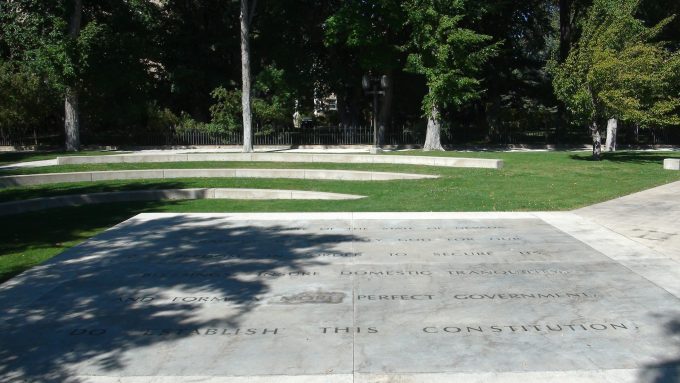
Wednesday, 10 October 2018
And no man takes this honor to himself, but he who is called by God, just as Aaron was. Hebrews 5:4
This statement is tied to verse 5:1, which says, “For every high priest taken from among men is appointed…” After saying that, the state of such an appointed priest was noted. The author now returns to the fact that the high priest is, in fact, appointed by saying, “And no man takes this honor to himself.” In these words, he is speaking of a legitimate high priest in the line of Aaron and for the role of mediation of the Mosaic law.
Aaron was specifically chosen, and the priesthood was given to him and to his line after him. Only those who met this qualification could rightly stand in this capacity. Further, Aaron and his sons, after selection, went through a lengthy and precise ordination process which then made them suitable to minister in this way. The honor wasn’t taken upon themselves, and the ordination process wasn’t invented by them. Instead, it was all by God’s choosing and by His instruction. Nothing concerning mediation between Himself and the people was left up to man. It was solely a work of God. This is then confirmed by the words, “but he who is called by God, just as Aaron was.”
It is not of man who wills, but of God who chooses and appoints. There were usurpers to the priestly duties who are recorded in the Bible. For example, when the ten northern tribes broke away from Judah, the king of Israel appointed his own priests to minister at his own high places. This is recorded in 1 Kings 13:33, 34 –
“After this event Jeroboam did not turn from his evil way, but again he made priests from every class of people for the high places; whoever wished, he consecrated him, and he became one of the priests of the high places. 34 And this thing was the sin of the house of Jeroboam, so as to exterminate and destroy it from the face of the earth.”
Examples such as this, and examples of disobedient priests even from the line of Aaron (as recorded in both testaments), show us that something more precise was needed, The false priesthood of Israel, and the fallible nature of the Aaronic priesthood even in Judah, were incapable of bringing about perfection of the people. But to be restored to God, perfection is necessary. As the priesthood of Aaron was deficient in this manner, so is the law which brought about Aaron’s priesthood. This does not mean that the law which was given was not good, but rather it was sin in man which made it impossible to bring about that which was necessary to wholly restore man to God. A new calling would be necessary. That calling would be of a perfect Man, through a new covenant, and with an everlasting priesthood.
Life application: If the priesthood ministered by Aaron could not bring about perfection, and as it is superseded by the priesthood of Jesus, why would anyone go back to the law (of which Aaron ministered) in order to attempt to be pleasing to God? It shows either the height of stupidity to reject the greater priesthood, or it shows the utterly arrogant nature of the individual to want to work towards a rest which has already been granted by God through faith in Christ. The implication is that such a person believes that what Jesus did wasn’t good enough and that they can do a better job than Him. Don’t show yourself either stupid or arrogant. Instead, show that you are wise in Christ, and totally reliant on Him alone!
Lord God, only through the finished work of Christ can we enter into Your rest. When He shed His blood, He cried out, “It is finished!” Everything needed to restore us to You came about through what He has done. And so why would we ever revert back to a law which could never bring us to perfection? In Him, we are justified. In Him, we are sanctified. In Him we are glorified. Help us to not assume we can do it better than He did. Thank You for the finished work of Christ, and for the rest which is made available through it. Amen!
